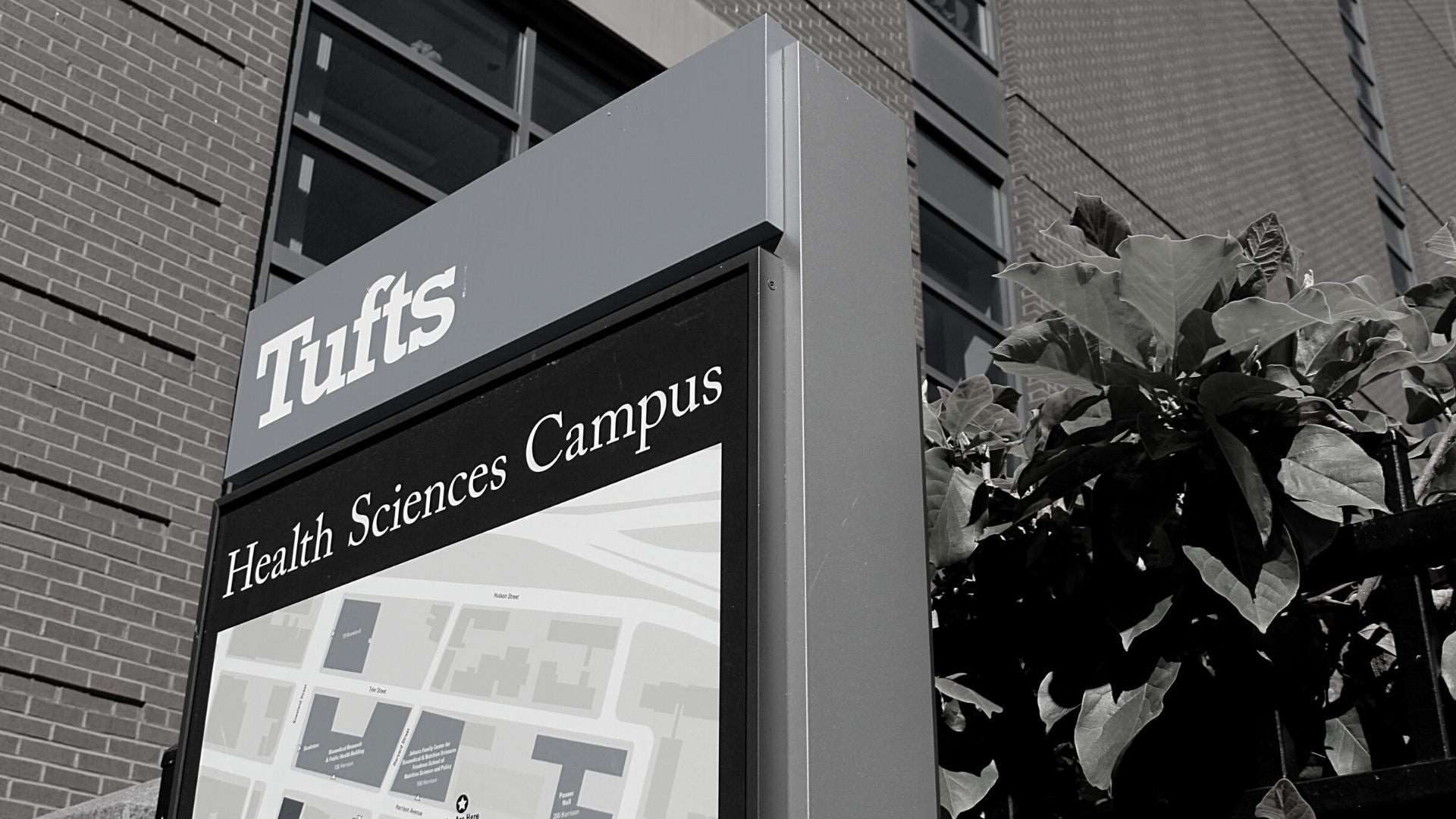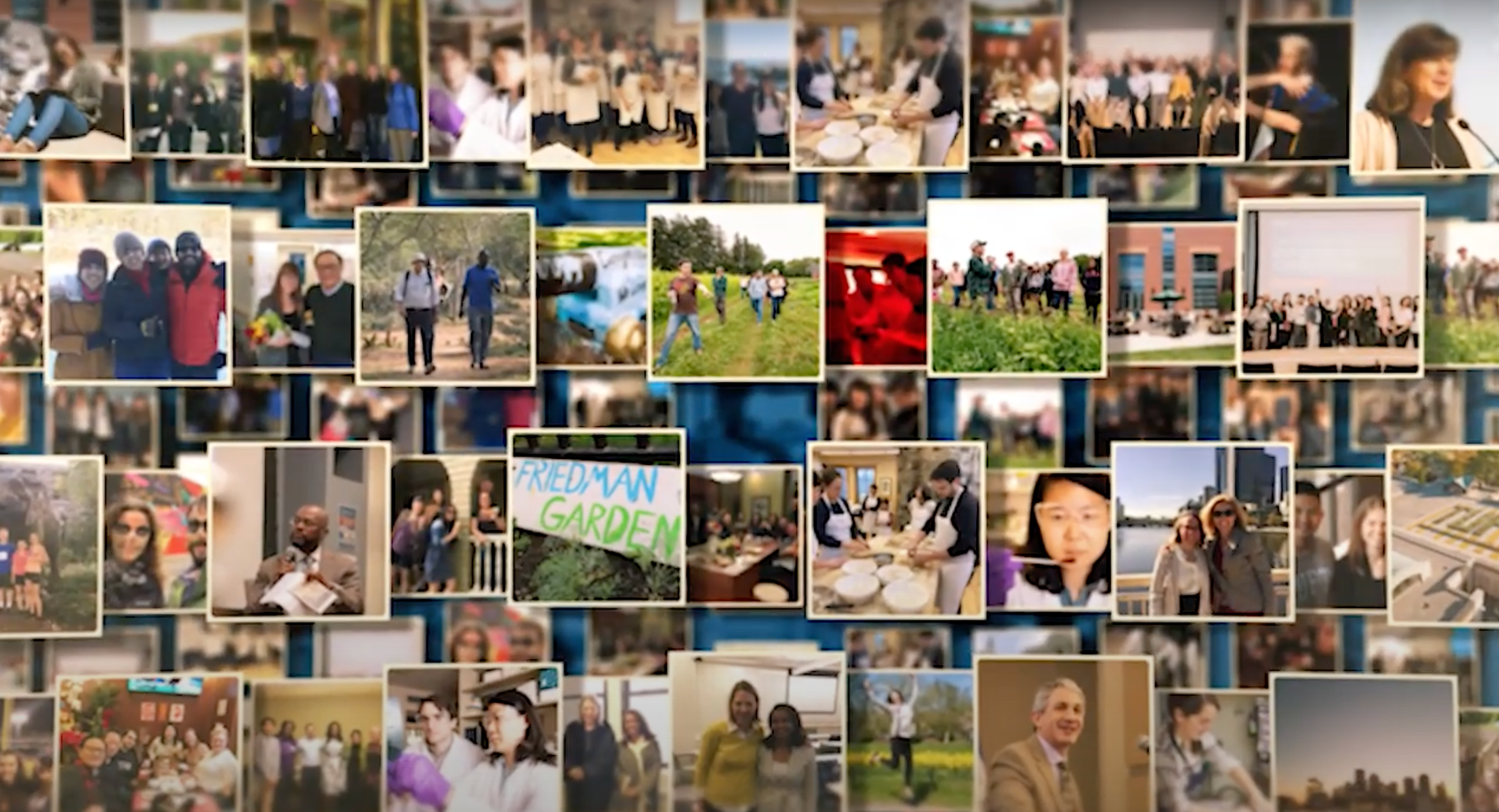A Year of Reflection, A Year of Action
While "normal" life came to an abrupt halt because of COVID-19, calls for social justice rang out after the murders of George Floyd, Breonna Taylor, and Ahmaud Arbery broke into the public consciousness and onto the streets on a global scale that had not been seen in recent memory. We listened to and moved forward with purpose on student- and alumni-led demands to address racial injustice and rededicated ourselves to fighting for equity and inclusion at all levels. With the vision and energy of the newly appointed Associate Dean of Diversity and Inclusion (and Associate Professor) at the school, Sara Folta and newly hired Adriana Black, the new Associate Director for Diversity and Inclusion Education for Tufts University Health Sciences campuses in Boston and Grafton, momentum grew exponentially as the year progressed. Friedman School leadership is grateful for the energy and passion demonstrated in pushing both Tufts University and the Friedman School toward justice, and for your belief in our ability to step up and do the work.

Student Leaders
A long-standing Friedman School student group committed to social justice was instrumental in helping the school formally create the current standing committee on Social Justice, Inclusion, and Diversity back in 2018. The SJID committee is now populated with members from staff, faculty, alumni, and students, and the charge of the committee is to weave our principles into the fabric of the school's curriculum, policies, priorities, and activities. The Student Alliance for Social Justice and Racial Equity launched their new website this year at Tufts and have been gathering resources, creating programming, and working directly with Dean Mozaffarian and Friedman School leadership to make the changes they want to see at the school in which they've invested their time and money.
Teaching Toward Equity: A Time to Rethink
In some departments and schools at Tufts, concepts of anti-racism and social justice were already an integral part of the curriculum. “Issues of social justice and sustainability are woven into the DNA of a department like ours,” says Julian Agyeman, a professor of urban and environmental policy and planning. “These crises are simply a confirmation of what we already knew.”
For others, the connections can be a little harder to tease out. “Where does [racial justice] fit in if you’re plugging numbers into an equation? How do you bring it into the classroom when there is no obvious on-ramp?” asks Associate Professor Sean Cash, who teaches the introductory statistics class at the Friedman School of Nutrition Science and Policy. “When you talk about racism, the biggest problem is not the bigot screaming obscenities from his front lawn,” says Cash—it’s the systemic racism beneath the surface. “It’s the same thing in the classroom—it’s not where the easy connections are, but where you have to squint to see where the connections are.”
Finding those connections won’t happen in a single semester. For teachers, it will involve self-reflection; listening; rethinking long-established syllabi or canonical sources; support from the university; and some trial and error. “This work is ongoing. There is no end,” says Ryan Rideau, associate director of Tufts’ Center for the Enhancement of Learning and Teaching (CELT).
The Quest for Justice: Revitalizing Cities
Tufts Now spoke with Friedman School alumna Alejandra Cabrera, N18 about the importance of centering anti-racism and making sure that people of color are at the table and able to lead in initiatives that may shape their lives. Cabrera is a cofounder of The Green Dragons, a nonprofit that uses martial arts and gardening education to engage diverse urban youth in health and fitness and address nutrition disparities. She’s also a sixth-grade science teacher in a Lowell, Massachusetts, public school and serves on the district’s farm-to-school committee.
"As an educator who strives to improve the nutrition and health of urban youth, I’ve learned that one of the biggest actions we can take for a more just future is to ensure our institutions are committed to being anti-racist.
No matter how well-intentioned the efforts to address nutrition disparities, if your organization is not committed to anti-racist action at all levels, it will inevitably continue to uphold the systems of white supremacy that make true food justice impossible.
What does it mean to be anti-racist? It means that rather than being “on the table,” as a topic of concern, people of color should be “at the table,” leading programs and shaping the policies that affect their lives.
We need to move beyond a model of service to a model of partnership, where the voices of people of color are centered, empowered, and elevated.
While this work is not always easy, it is everyone’s responsibility. Only by putting our egos aside and leaning into the discomfort can we foster the honest and open dialogue necessary to come up with the creative, community-specific solutions our food system requires to achieve justice."
"No matter how well-intentioned the efforts to address nutrition disparities, if your organization is not committed to anti-racist action at all levels, it will inevitably continue to uphold the systems of white supremacy that make true food justice impossible." - Alejandra Cabrera, N18
The Road to Eradicating Structural Racism at Tufts
In response to the latest incidents of racial violence in Kenosha, Wisconsin, President Anthony Monaco expressed his support for and solidarity with Black students, faculty, and staff at Tufts. “I share their pain and outrage over the shooting of Jacob Blake,” he told Tufts Now.
“I share their anger and frustration at the murder of two protesters allegedly at the hands of a teenage white supremacist,” he said. “As before, we are trying to find a path forward, only to seemingly find ourselves, once again, in exactly the same place where we started.”
Acknowledging that the road to eradicating structural racism may be longer and slower than anyone would like, he reaffirmed the university’s commitment to action.
“Words without actions matter little,” Monaco said. “While I share the pain, outrage, anger, and frustration of our Black students, faculty, and staff, I know that I don’t share their daily experiences. I have a responsibility to acknowledge that difference, to state very clearly and explicitly that Black lives matter, and to commit our university to ensuring our words are matched with action.”
On June 19, Monaco announced that he would be creating five workstreams with the goal of making Tufts an anti-racist institution:
- Institutional Audit and Targeted Action
- Campus Policing
- Public Art
- Compositional Diversity
- Equity and Inclusion
All of these workstreams have now been created, convened, and the work they've been charged with is underway.
“Words without actions matter little,” Monaco said. “While I share the pain, outrage, anger, and frustration of our Black students, faculty, and staff, I know that I don’t share their daily experiences. I have a responsibility to acknowledge that difference, to state very clearly and explicitly that Black lives matter, and to commit our university to ensuring our words are matched with action.”
